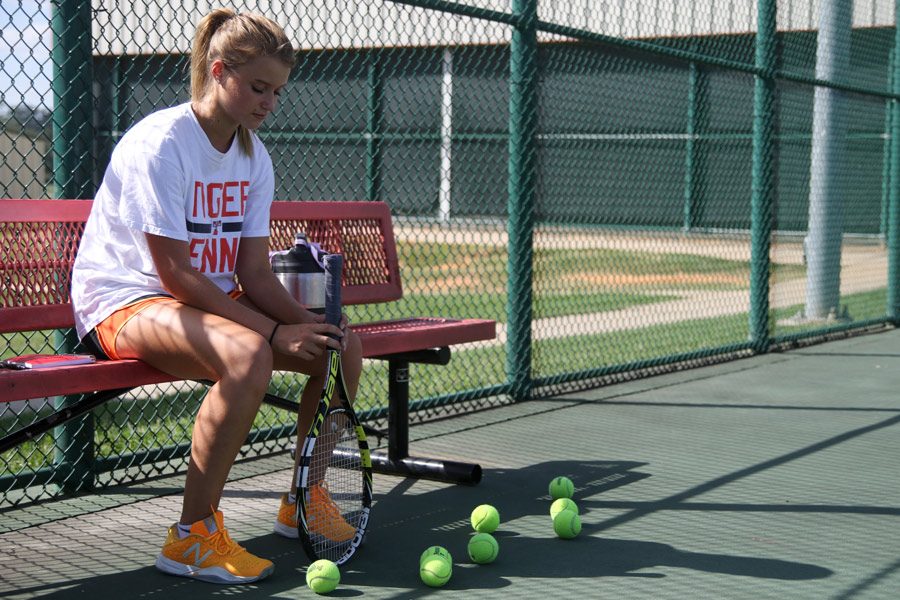Mental toughness training
For athletes, physical strength is not all that matters
Photo by Angela Valle
September 27, 2016
Every athlete faces challenges that have nothing to do with athleticism but have everything to do with their mindset and the way they think. What are you going to do when you drop the touchdown pass? How will you react when you lose the game? The way you deal with pressure situations is called mental toughness.
In almost every sport, mental toughness plays a crucial role. A point can be reached where someone peaks physically, but if they don’t have mental toughness they will never improve. All throughout my high school tennis career, the importance of being mentally tough has been stressed.
My freshman year I had Coach John Watson, and he made sure that his players were known for fighting. Not physical fighting, but never giving up even after a tough game or set. Each week, the tennis team was asked to memorize a quote, which seemed easy enough. However, we had to say all the quotes we learned at the end of year. By that time we had memorized over 20, and I can still remember my favorite one: “The more you sweat in peacetime, the less you’ll bleed in war.”
Something as small as learning a quote can definitely contribute to improving mental toughness. Now, the mental toughness training has been amped up a couple notches. The tennis coaches require us players to write in a small notebook after every single match we play. We write about how we did, how our serve was, talk about our consistency, what we did wrong and what we could improve.
Sometimes this can get rather tedious, but being forced to think about these kind of things really makes us focus and improve. Even if we don’t want to think about all the mistakes we made in a match or what we did wrong, taking a mental note of them is the first step towards improvement.
Not only do we have to write about past matches, we are also given other assignments. A recent one was, “What do you do differently when you get nervous, and how can you improve it?” This one was particularly hard to do, but it made me really pay attention to the differences in my play when I am nervous. Everything had a simple fix, all I had to do was notice them.
Being mentally tough in other sports requires the same amount of preparation and thinking. Most people are not naturally advanced in their mental game, and whipping out a small journal to write about successes and failures could have bountiful rewards.
Mental toughness is not an easy thing to achieve; it requires effort and thought day in and day out. It’s about keeping it together in a tough situation. It’s about pushing a little harder in practice each day. It’s about fighting to win even when you’re down and want to give up. When victory is in sight, what will you do to reach it?
















